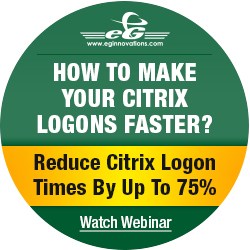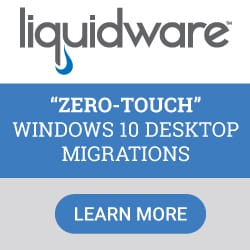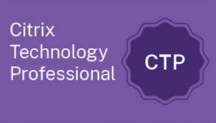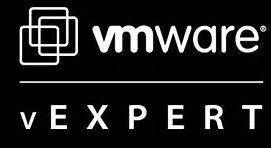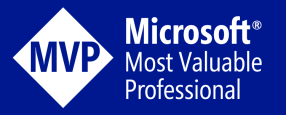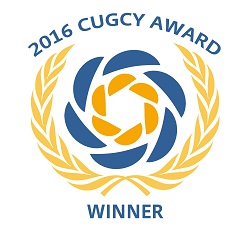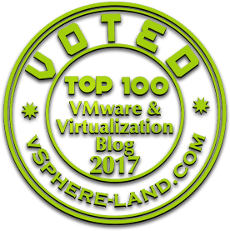You must evaluate information sources, it is one of the foundations of digital literacy. How can we be sure the information we read in a tweet or blog post (or hear on a podcast or see in a video) is reliable? Continually re-evaluating information sources is an important pillar of digital literacy, especially with topics that are morphing quickly. Enterprise data center operations is a field that is constantly changing. As we approach the 16th VMworld, what do we need to keep in mind about the information sources we rely on to guide us through these transformations?
How old is the VMware community?
VMware as a company is 21 years old, and we’ve had 15 VMworlds. Virtualization and Cloud Review wrote a really good post on the history of VMworld a few years ago, pulling quotes from the first VMworld (held in 2004). This one really stood out for me (emphasis mine):
One Web site called VMware “an innovative small-time vendor largely unknown outside an enthusiastic circle of clients and datacenter professionals.” Some core technologies of the time, like Virtual Center, vMotion and Virtual SMP, had been available for about a year.
I remember this time well. I was still a sysadmin in 2004, but when I returned to EMC in 2006 this was still the prevailing attitude about VMware: it was separate, and it was still seen as a tool for that “enthusiastic circle of clients and datacenter professionals”. Thank goodness that enthusiastic circle included the person who managed the Ed Services lab, some friends, and me. The last training lab I built was hosted on vSphere, and I was even scripting things to clean up the labs between classes.
Is Our Community Still Just an Enthusiastic Circle of Clients and Datacenter Professionals?
Well, we are, but we really are not. That description of VMware when we started really sounds more like many current startups that support cloud, AI, and other innovative technologies today. We certainly can’t say VMware is a small-time, largely unknown vendor. VMware technologies are integral to most datacenter environments. The 1st VMworld only had about 1500 attendees, we’ll hit over 20K in San Francisco this year.
Do you still consume information from the same influencers who drove the change 15 years ago? Who can you trust to bring you the real story? Are you continually Evaluating Information Sources?
Just a quick note, I’m going to share commonly agreed-upon ways to evaluate information. I need to disclose that I work for VMware, but my Bachelor’s of Science was based on this field. That’s what I’ll be sharing, but please apply the following criteria to me as well when you decide if you can consider the information I’m sharing as credible.
This really is the 1st step to evaluate information sources: who wrote it? Things to think about:
- Where does the author work? If they work for a vendor, you must always assume bias. Even if they don’t want to admit it, we are bound to the company that pays our bills. There are things we can and cannot say. Sometimes there are things we are forced to say, or repercussions for not saying things a certain way.
Employees of vendors will always carry bias. - What else has the author written about? If you’re following someone who has always written about storage, they most likely can write credibly about virtual storage. Maybe even about cloud storage. But if they’ve never written about identity management, or devops, can they be credible? Maybe, but it deserves your evaluation.
- What work background does the author have? Have they always worked for vendors? Have they ever worked as a system/virtual/storage/network admin? Have they lived that life? I always say until you’ve had to sleep under a conference room table waiting on parts, you really don’t understand a customer.
- Who quotes/links to the author? Is the author seen as an authority? Do you see their work linked from other sources (blogs, message boards, emails, etc)? If others see the author as credible, that is a good sign.
Evaluate these sources, especially if you’ve followed someone for years. Are you looking for authors with fresh perspectives? Do you dismiss new authors based on what some of these more established authors say? Remember, at one time hype around VMware was carried by “enthusiastic circle of clients and datacenter professionals”. Don’t miss out on learning about the next big thing because you’re in a comfortable bubble.
Evaluate the publisher
What if there isn’t an author listed? I write a lot of things that get published, but my name isn’t associated with them. If you’ve looked at product pages, data sheets, etc. for products I’ve been responsible for as a Product Marketing Manager, I wrote that!
If a vendor publishes something, you have to assume bias. However, speaking with my vendor hat on, most big vendors have a huge legal team that restricts the claims we can make. So, while you can assume the vendors are trying to sell you something, the content they are providing will pretty much always be accurate. So while you need to evaluate vendor-published content with a critical eye, don’t discount it! If something doesn’t ring true, reach out to the vendor for clarification.
However, if you come across content that bashes other technologies or vendors, tread very carefully! If you can’t see an author, you’ve already lost an evaluation point. This makes evaluating a publisher – and why they’d be negative on a technology or other vendor – even more critical.
Evaluate Information Sources to Keep up with Community Changes
If we go by the 1st VMworld, the virtualization community really got going at the 1st VMworld in 2004. But technology has changed. Your information needs have probably changed with the industry innovations. Evaluating the author and the publisher of content you review are only the 1st steps to healthy digital information hygiene. Expand the net you cast when looking for information about new virtualization technologies, and continually re-evaluate information sources on which you’ve come to rely.
Most importantly – add your voice to this discussion! Our industry is changing so quickly, we need to hear from as many voices as possible. Variety of information sources is what helps the entire community move collectively to the next technical plateau.


